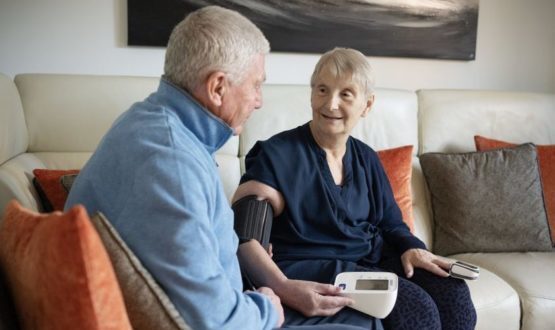Patient surveys launched into hospital call costs
- 6 April 2006
A national campaign to discover the views of patients and visitors hospital bedside television and telephone services has been launched by the Commission for Patient and Public Involvement in Health.
The campaign, which is being undertaken by Patient and Public Involvement (PPI) Forums across England, will for the first time give consumers of these services the opportunity to voice their opinions and concerns.
The forums, one of which exists for every NHS trust in England, and which represent patients and the public in decisions about health, decided action was needed after receiving a "deluge" of complaints from patients and their visitors on the cost of services provided by companies providing bedside communications and entertainment services such as Patientline, Hospicom and Premier.
A spokesperson for the Commission for Patient and Public Involvement in Health (CPPIH) told EHI "We’ve got forums across the country that have received complaints from patients and the public". Last year local forums in the North West of England set up a special group to look at complaints about charges made by Patientline.
The new surveys will investigate whether hospitals allow patients the choice of using their mobile phone in certain areas of hospitals. A growing body of research, including 2004 guidance from the Medical and Healthcare Products Regulatory Agency, has indicated that mobile phone use is not generally a significant risk in hospitals, tending to undermine the justification for forcing patients to use premium rate bedside communications systems.
The CPPHI spokesperson said that a number of local forums had already successfully "persuaded their trusts to relax mobile phone away".
The Commission for Patient and Public Involvement in Health (CPPIH) told EHI that Forums across England will conduct surveys to "discover the true cost and quality" of the services and "establish if patients and the public’s best interests are being served".
Findings from the surveys will be provided to the Department of Health to help inform its current review of bedside communications and entertainment services.
Steve Lowden, chief executive of CPPIH commented: "PPI forums have received many complaints from members of the public, who are telling them that they simply cannot afford the telephone charges that private companies have set. Many feel that these prices are exploiting the most vulnerable and placing real hardship on patients, their families and friends."
Lowden added: "Forums will also be investigating whether there is real patient choice – the opportunity to use personal mobile phones , which have been proved to have no detrimental effect on medical equipment."
The campaign was launched on the same day that Derek Lewis, the chairman of Patientline, stepped down from the role and was replaced by iSoft’s deputy chairman, Geoff White. Patientline is today holding an Extraordinary General Meeting, citing a "loss of customer confidence in the service’s value for money and quality".
In January 2006 Ofcom today closed its investigation into the price of telephone calls to hospital patients with a recommendation that the Department of Health (‘DoH’) review all aspects of the installation and operation of bedside telephone and entertainment systems in hospitals. It recommended that the DH focus on "the way in which the cost of providing these services appears to be borne disproportionately by friends and family calling patients in hospital".
The 2005 Ofcom investigation followed complaints from consumers about the prices charged by Patientline and Premier for calls to hospital patients (in most cases, 49p per minute peak and 39p per minute off-peak). Ofcom also looked at the use of a recorded message at the start of these calls, and the exclusivity and length of agreements between NHS Trusts, Patientline and Premier.




